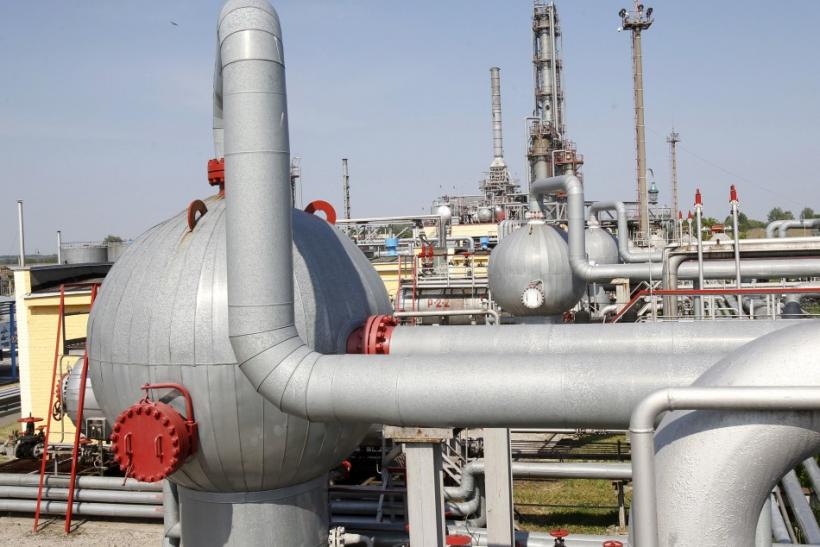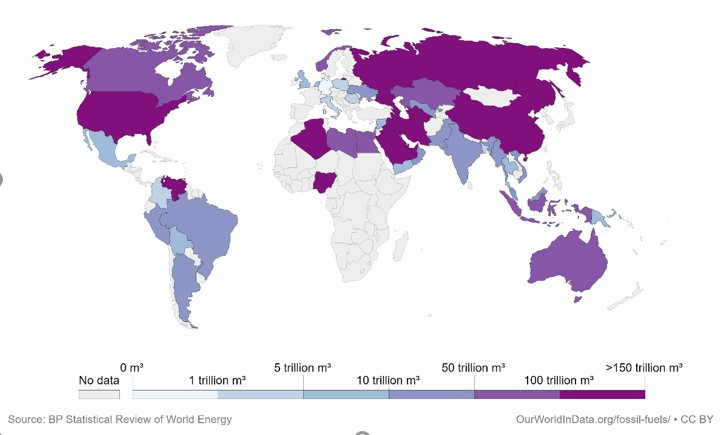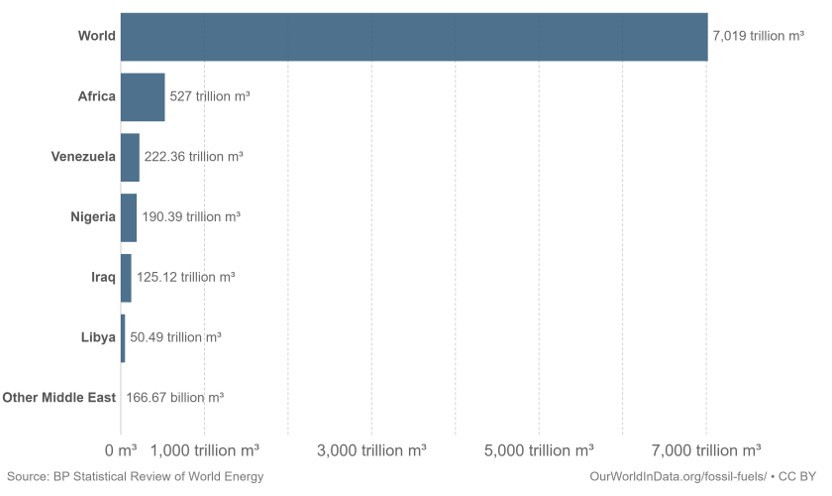BY: Sibel İleana Okumuş

PEJOURNAL – Turkey’s recent finding natural gas reserve in Black Sea did not make a big impact because of the course of the economy and the existence of other problems. In contrast, the economic and social problems such as depreciation of Turkish lira and backwardness in terms of human rights are the subjects that being argued. This leads us to search how these resources are distributed in countries with valuable underground resources and how transparently this is done. In this context, we are going to examine the gas reserves of countries and its connection with governence, specifically with democracy.
The amount of natural gas in the Black Sea, according to the statements of president of Turkey is 320 billion m³. Even if the amount of natural gas is not enough to export and trade, it is important on behalf of to meet the 6-year natural gas need of the country. Being almost completely foreign-dependent in terms of energy, gas import of Turkey costs 40 billion dollars per year. On the occasion that turkish lira is depreciated against dollar, citizens began to pay more and more bills and taxes and the existence of hikes naturally increased the disturbances against the government.
However, not only because of the foreign dependence but because of populist discourse, this new discovery was presented as a national victory and a move to strengthen the government. In the light of the information obtained and Turkey’s political environment an important question is, whether the government will drill the natural gas with its own technology and staff and how the people will benefit from it. The point to look at in this discussion is actually the governance. Namely, the concepts of democracy and transparency is important in order to know how and in what way resources are used.
Turkey is far behind in the enforcement of rights and freedoms. The most important factors in this are that the administration has been in the same party for many years and the balance of powers is not maintained. It can be said that the lack of opposition mechanisms, the impact on the media and the transparency of the expenditures are the factors which affect the citizens but also are the factors that prevent foreign investors from investing hence economy is being negatively affected. The importance of democracy and good governance as we mentioned before is not independent from economic policies and on the contrary there is a mutual dependence.
As we mentioned at the beginning of the article, we are going to subject the use of natural gas resources leaving aside the Turkey case, by looking at the democracy indexes and welfare of countries rich in natural gas reserves in order to draw some conclusions on this matter.
Natural Gas reserves in the world

This data shows known natural gas reserves in the world. Looking at this map, we can say that the majority of natural gas resources in the world are concentrated in the Asia Pacific region. When we look at the countries that have the most natural gas, we come across economically and politically strong countries such as the USA, authoritarian and powerful countries such as Russia, and countries like Iraq that have been exploited due to their natural resources and interfered on their internal affairs.
Because of this diversity, we cannot say that energy resources always bring prosperity to countries, nor can we claim otherwise. What causes this diversity is the historical development of countries, how well they adapted to the world economy and how they were managed.
Although the natural wealth of some countries has made them an open target, the countries we are talking about here are not in this position but do not use their natural resources for the benefit of the people and are also far from democratic rule. An important example of good governance and transparency on public investments/using sources is Nordic countries. Practices such “Wealth Fund” shows how the resources are used and how the citizens benefits. When we look at these countries, an important point is these are governing by regimes called full democracy. Another example to give can be Canada. Having both oil and natural gas resources, it is a wealthy country and also fully democratic.
Fair and transparent elections, civil liberties and properly applied political rights combined with the economic power and sources leads to prosperity and creates a cycle between wealth and democracy which supports one another. The important features of these countries with a high level of wealth are social state practices and the transparency of governments. Of course, the fact that they are located regionally in a geography far from problems has a great effect in these situations. Yet, the fact that the USA, Russia and China, which have more resources and more power, are behind from these countries in terms of prosperity and democracy should not be ignored.
When we look at countries, which have a significant portion of the world’s gas reserves, we see that the USA ranks 25th, Russia 134th and China 153rd in the democracy index. This countries have economic and military power and are important parties of every political occasion in the world. Yet -except the USA because of having a good rank among the others- Russia and China have authoritarian regimes and these are the two of the most oppressing countries. Human rights and civil rights mostly are violated and the well-being is not at a good level.
It is possible to say that the social state investments of these countries are also not at the level of Norway. The extraction and processing of resources are often in the hands of large companies, and we find that the financiers are getting richer and that big corporations and in some cases pro-government corporations benefit most.
Also the comments we made about Turkey was close to it. Although it does not have a huge amount of natural gas sources,i t is possible that the right of processing the natural gas found and making it suitable for use will be given to a company close to the government. If we examine this example in a country with strong democracy, we will see that the use of resources and the public procurement of the company that will operate will be transparent.
Before moving on to the example of countries such as Iraq, we should also mention the existence of countries such as Russia, China and the USA that have many resources but are not strong in global politics. We see a Russian-type situation in countries with rich underground resources such as Turkmenistan, Qatar and Saudi Arabia. When we look at the democracy indexes of these three countries, we see that these are behind other countries in many ways and are ruled by authoritarian regimes. Of course, rich Arab region is decomposes from Asian region by its prosperity but still it is important to observe the lack of democratic exercises and level of corruption.
The third of the country types rich in natural resources are the countries that became targets due to their resources and could not benefit from their resources. Venezuela and Iraq can be given as example. It is a fact that these countries experience a lot of internal turmoil and are subject to interventions from outside. Regional and ethnic conflicts, bad governence are the main reasons of the situation of these countries. Yet, we will ignore the other facts and concentrate on democracy score of these countries.

The countries whose natural gas reserves are given above are countries that have either experienced internal conflicts or have been exploited continuously in the historical process. In the 2019 democracy index of these countries, we see that Nigeria ranked 109th, Iraq 118th, Venezuela 140th and Libya 156th.
It is difficult to come across the benefits of democracy such as civil rights and human rights in these countries, many of which are authoritarian. It is quite normal that public services and transparency are also questioned in places that have failed to meet the necessity of democracy and are not familiar with such a government in terms of political culture. Again, when we consider the underground resources and governance forms of these countries together, we see that the regime type becomes the most important actor in the use and sharing of resources.
Besides giving the credit of historical development and regional conditions, a good governance has a key importance on prosperity. A democratic regime which fulfils its requirements such as civil rights, freedom of opinion, transparency etc. will naturally use its sources on benefit of society. Such examples like Canada and Norway should be taken as an example in the implementation of democracy and sharing resources. The question of whether the citizens will benefit from the natural gas found in Black Sea region is a problem of democracy and trust. Not collecting power in one hand and strengthening control mechanisms over government will improve the functioning of democracy and eventually will increase well-being.